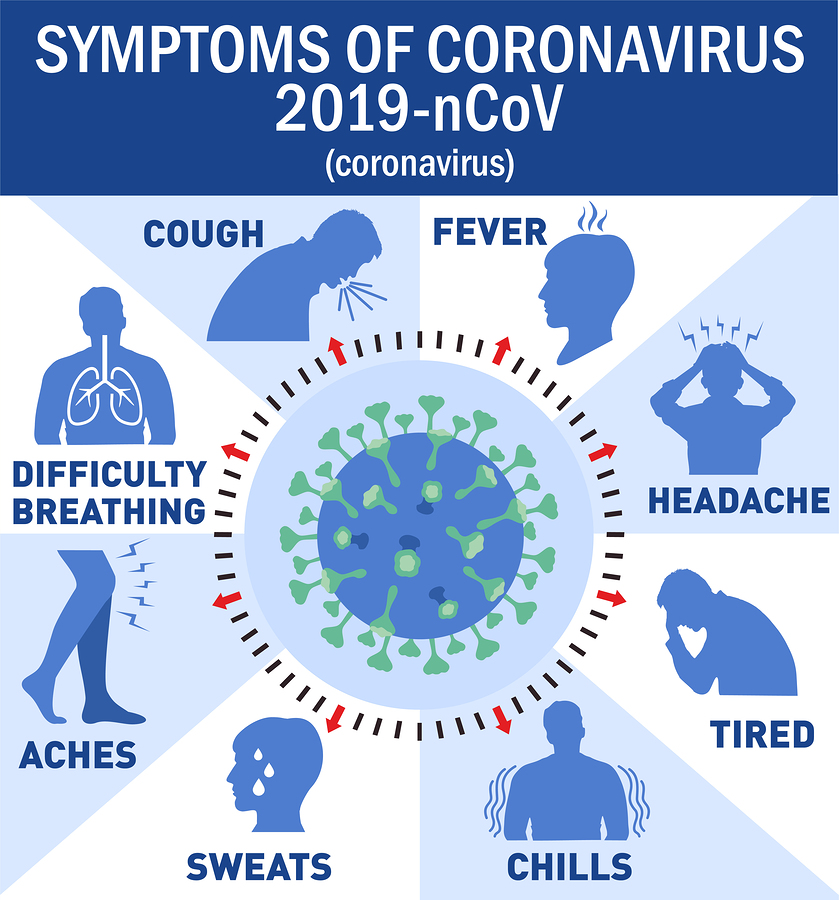The coronavirus outbreak has many people clamoring for hand sanitizer and toilet paper; many elderly individuals in our community may be more at risk for infection. When caring for your elderly family member it is important to understand the risk that the novel COVID-19 virus poses towards them.
Higher Risk for Symptoms
As with many infectious diseases, there is a higher risk of infection for elderly individuals, and the fatality rate is also higher, especially when coupled with other medical conditions. According to the CDC, the primary symptoms of this virus include fever, cough, and shortness of breath. These are fairly common symptoms for other illnesses, such as the seasonal flu. If your loved one is showing any of these symptoms, call their physician or healthcare provider for medical advice.
Social Distancing
Social distancing is the act of limiting close interactions. This is to help limit the spread of infection. For many people, this means staying at home whenever possible, and avoiding public transportation. If your loved one needs to go out, drive them instead of having them travel themselves. Additionally, reduce their exposure to others. If they need to run errands, see what you can accomplish for them. Children and teens may be carriers of the disease without showing symptoms; so keep the grandkids away for a bit. Consider helping your loved one learn how to video chat, so they can stay connected to the family while lowering the risk of infection.
Hygiene and the Coronavirus
After distancing, it is important that you, your loved one, and your family practice good hygiene to help reduce the risk of infection further. Wash your hands, use hand sanitizer, and disinfect surfaces. Follow CDC and WHO advice for hygiene and avoiding exposure. Often, elderly individuals may not have the best hygiene as it becomes harder to practice self care as you age. Help your loved one trim their nails, and remind them to wash their hands more often.
Coronavirus and Health Complications
The novel coronavirus has shown to have a higher fatality rate among the elderly, especially when they have health complications. People with diabetes, heart disease, and respiratory issues like asthma and COPD seem to face a higher risk. According to the American Diabetes Association, this risk for diabetics is only prevalent for people who have trouble managing their blood sugar. Diabetics that are managing their blood sugar well have about the same level of risk as the general public. Talk to your loved one’s physician for more information on caring for your loved one based on their health condition.
Immuno-Compromisation
For the immuno-compromised, there is even more of a risk. Causes of a suppressed or compromised immune system could be chronic illnesses; such as lupus or HIV. Some illnesses, such as pneumonia, can also weaken the immune system. Chemotherapy for cancer treatment can also reduce the effectiveness of your immune system. Talk to your loved one’s physician for more information on caring for your loved one based on their immunodeficiency.
For more than 40 years, our firm has been assisting people like you with long term care and estate planning needs. We bring you the knowledge and resources to protect you and your family. Armstrong & Lamberti, PLLC does not provide tax, legal, medical, or accounting advice by articles. This material has been prepared for informational purposes only and is not intended to provide, and should not be relied on for, tax, legal, medical, or accounting advice. Call 718.477.7700 or contact us online to schedule a free initial consultation with an estate planning attorney at Armstrong & Lamberti, PLLC. We proudly serve Staten Island, Brooklyn and the other boroughs of New York City.
Information regarding the novel coronavirus is changing daily. For more up-to-date information, check the CDC and WHO websites.

